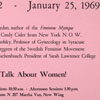 |
|
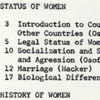 |
|
 |
|
 |
|
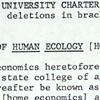 |
|
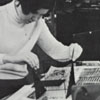 |
|
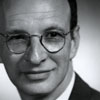 |
|

Why the Change to Human Ecology?
By the 1960s, the name "home economics" often suggested gender stereotypes that many women were struggling to overcome. In 1965, President James Perkins created a committee to study and make recommendations to modernize the college. In its December 1966 report, the committee suggested a college-wide reorganization based on strong, discipline-based departments. With extension and outreach efforts increasingly focused on broad social issues, students in the college needed to be trained for professional roles outside the home.
Although home economics seemed socially conservative, it actually helped to generate Cornell's contemporary women's studies program with its feminist perspective on gender. In January l969, before the name change, Cornell hosted a controversial Intersession Program on Women that was sponsored by the College of Home Economics. The conference sparked an Ithaca chapter of the National Organization of Women (NOW) and the first collegiate "female studies" course offered by the Department of Human Development and Family Studies.
That same year, President Perkins and Dean David Knapp persuaded the faculty to accept the name Human Ecology which, while somewhat ambiguous, accurately reflected the academic and theoretical orientation of the College and its diverse concerns with problems of human welfare. Incidentally, Ellen Swallow Richards, the first president of the American Home Economics Association, had considered the name "human ecology" back in 1909. With the transformation of home economics complete, Dean Knapp stated, "The time is now at hand to direct past traditions of problem-solving toward a new focus. The basic mission of [Human Ecology] is to improve the quality of life."
Select an image at left
or choose from the list below:
|
|||||||||
|
Copyright © 2001 Division
of Rare & Manuscript Collections For reference questions, send
mail to: rareref@cornell.edu
|
